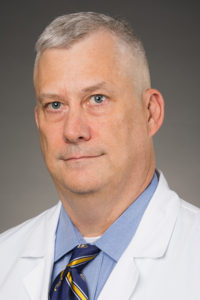
Victor J. Test, MD, FCCP, will take over as CHEST Program Chair for 2020, succeeding this year’s Chair William Kelly, MD, FCCP. Dr. Test has been an active CHEST member for years and was this year’s Chair of the CHEST Educator Development Subcommittee. As Chair, he focused on continuing to ramp up the Clinician Educator track at CHEST, ensuring the programs and courses are up to par with how medical education is evolving through active and interactive learning. Daily News asked him a few questions about plans for CHEST 2020 in Chicago.
What plans or goals would you like to accomplish at next year’s meeting?
→ We’re going to continue to push our training members’ programming to the spotlight and focus on their contributions to the meeting, including highlighting the CHEST Challenge as we always do. We’re also going to focus more on CHEST legends, masters, and Past Presidents to get them more involved in the meeting in a way where they can interact with our membership and the attendees. I think that’s going to be an important cornerstone of what we do. We’re going to continue to move away from a strictly lecture-based format and continue to push the envelope in terms of creative ways to deliver content, in addition to live-streaming more of our content. It’s going to be really hard for me to be more creative than Dr. Schulman and Dr. Kelly (former Chairs) who just seem to come up with a new idea every other minute. I’m hopeful that I’ll be able to at least come up with some other contributions. But I think putting the spotlight on our training members and their contributions to the meeting is the foremost thing.
How will you incorporate interdisciplinary learning into the 2020 meeting?
→ We have been making a move the last few years to ensure diversity in gender, race, levels of training, and also in career disciplines. We try to reflect our education in the way that we give care, which is almost always in some degree team-based. We’re going to continue to teach our team-based learning with interdisciplinary sessions and also in simulation. We encourage people to bring some of their team and have them go through a critical care simulation together, for example.
What are some of the perks of having the meeting in Chicago?
→ It’s a draw for people to come to Chicago because of the city experiences and because it’s easier for people to transport to, including international attendees. It’s traditionally the best attended of all of our meetings.
How is the planning going?
→ The planning has definitely already started. We have a really large and dedicated group of staff that do miracles in terms of making this meeting come off smoothly every year. But we also have a very large group of volunteer health-care professionals who are dedicated and already participating in program development for this meeting. We start planning for things like simulation and interdisciplinary programs more than a year in advance, and we expect them to keep getting better and better every year.





